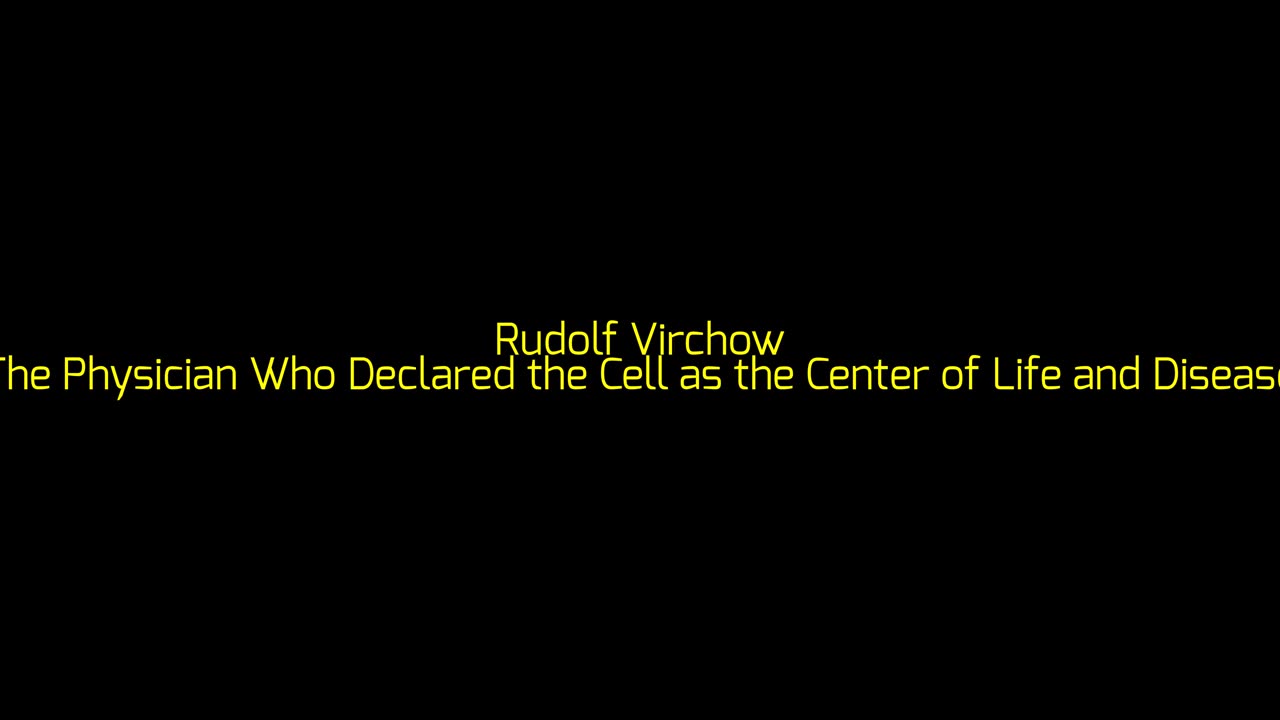Premium Only Content

Rudolf Virchow: The Physician Who Declared the Cell as the Center of Life and Disease
On October thirteenth, eighteen twenty-one, Rudolf Ludwig Karl Virchow was born in Schivelbein, Prussia (now Świdwin, Poland). He was a physician, pathologist, anthropologist, and biologist, and his academic field was cellular pathology and social medicine.
Virchow's groundbreaking work forever changed the understanding of disease. Before his time, many believed that illness arose from imbalances in bodily fluids. Instead, Virchow proposed a radical new theory: cellular pathology. His famous aphorism, "omnis cellula e cellula" – "every cell stems from another [pre-existing] cell" – underpinned this. He argued that all diseases, including cancer, originate from disturbances in the body's normal cells, not from invisible fluids. This shifted medicine from a macroscopic to a microscopic level. He was the first to systematically describe leukemia and made crucial contributions to the understanding of thromboembolism. Outside the laboratory, Virchow was also a passionate advocate for public health and social reform, famously stating that "physicians are the natural attorneys of the poor."
-
 4:39:39
4:39:39
SpartakusLIVE
6 hours agoNEW Mode - ZOMBIES || LAST Stream from CREATOR HOUSE
54.9K6 -
 3:36:25
3:36:25
The Charlie Kirk Show
8 hours agoTHOUGHTCRIME Ep. 101 The New York City Communist Debate? MAGA vs Mamdani? Medal of Freedom Reactions
152K61 -
 2:14:47
2:14:47
Flyover Conservatives
1 day agoSatan’s Agenda vs. God’s Timeline: Witchcraft, Israel, and the Assassination of Charlie Kirk w/ Robin D. Bullock and Amanda Grace | FOC Show
56.2K10 -
 3:14:57
3:14:57
PandaSub2000
5 days agoBye Sweet Carole | MIDNIGHT ADVENTURE CLUB (Original Live Version)
40.4K1 -
 1:22:51
1:22:51
Glenn Greenwald
10 hours agoThe Irony of John Bolton's Classified Docs Indictment; Prominent Dems Now Stutter When Asked About AIPAC; Celebs in Saudi Arabia Controversy: What Does it Reveal? | SYSTEM UPDATE #532
102K56 -
 39:25
39:25
Donald Trump Jr.
9 hours agoFBI's Incredible Crime Crackdown, Plus my Message to ABC!! | TRIGGERED Ep.283
156K113 -
 2:53:38
2:53:38
BigTallRedneck
7 hours agoPGA 2K25 - REDNECK'S WAY OR THE HIGHWAY
19.1K1 -
 2:43:58
2:43:58
megimu32
6 hours agoON THE SUBJECT: MTV | From 24/7 Music to… Silence?
11.6K6 -
 4:38:09
4:38:09
Reolock
8 hours agoWoW Classic Hardcore | More Ultra? Maybe Mage?
8.83K -
 1:02:05
1:02:05
BonginoReport
9 hours agoMusic Stars Go Viral For Anti-ICE Rants - Nightly Scroll w/ Hayley Caronia (Ep.157)
79.5K44